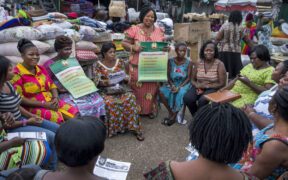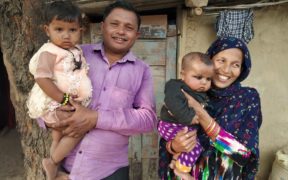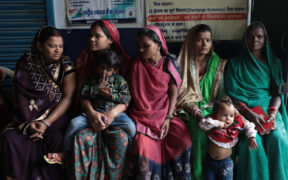Author:
Ruwaida Salem

At Knowledge SUCCESS, we work closely with family planning and reproductive health (FP/RH) projects around the world to support their knowledge management (KM) efforts—that is, to share what works and what doesn’t work in programs, so we can learn from each other, adapt and scale up best practices, and avoid repeating past mistakes.

Knowledge SUCCESS is pleased to announce the second edition in a series that documents what works in family planning and reproductive health (FP/RH). The series uses innovative design to present, in-depth, essential elements of impactful programs.

We all know that sharing information across projects and organizations is good for FP/RH programs. Despite our best intentions, however, information sharing doesn’t always happen. We might lack time to share or we aren’t sure if the information shared will be useful. Sharing information about programmatic failures has even more barriers because of the associated stigma. So what can we do to motivate the FP/RH workforce to share more information about what works and what doesn’t work in FP/RH?

How might we encourage the FP/RH workforce to share knowledge with each other? Particularly when it comes to sharing failures, people are hesitant. This post summarizes Knowledge SUCCESS’s recent assessment to capture and measure information-sharing behavior and intention among a sample of FP/RH and other global health professionals based in sub-Saharan Africa and Asia.

From October 2021 through December 2021, members of the family planning and reproductive health (FP/RH) workforce based in francophone sub-Saharan Africa and the Caribbean convened virtually for the second Knowledge SUCCESS Learning Circles cohort. The cohort focused on the topic of meaningful youth engagement in FP/RH programs.

D'octobre à décembre 2021, des professionnels de la planification familiale et de la santé reproductive (PF/SR) basés en Afrique subsaharienne francophone et dans les Caraïbes se sont réunis virtuellement pour la deuxième cohorte de Learning Circles de Knowledge SUCCESS. Le thème principal était la mobilisation significative des jeunes dans les programmes de PF/SR.

Knowledge SUCCESS is excited to introduce FP insight, the first resource discovery and curation tool built by and for family planning and reproductive health (FP/RH) professionals. FP insight grew out of last year’s co-creation workshops as a way to address major knowledge management challenges in the FP/RH field.

Today, Knowledge SUCCESS is pleased to announce the first in a series that documents “What Works in Family Planning and Reproductive Health.” The new series will present, in depth, essential elements of impactful programs The series uses innovative design to address some of the barriers that traditionally discourage people from creating or using documents that share this level of detail.

These are the top 5 family planning articles of 2019 published in the Global Health: Science and Practice (GHSP) journal, based on readership.














